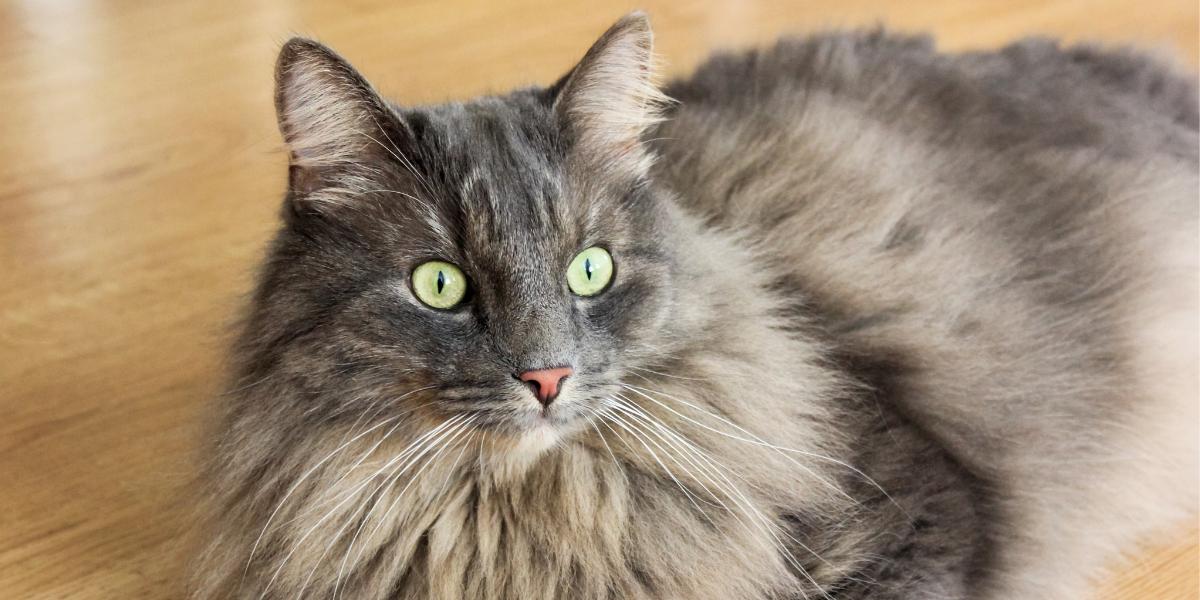
The feline mind is a fickle one. Cats are pint-sized predators, but also spend hours napping on plush comforters and purring. They paw at your face for attention at 3 am, but then stand aloof when you call their name.
This article brings you 10 cat brain facts that showcase just how fascinating our cats’ minds are.
1. Cat Brain Size Is Relatively Smaller Than Humans and Dogs
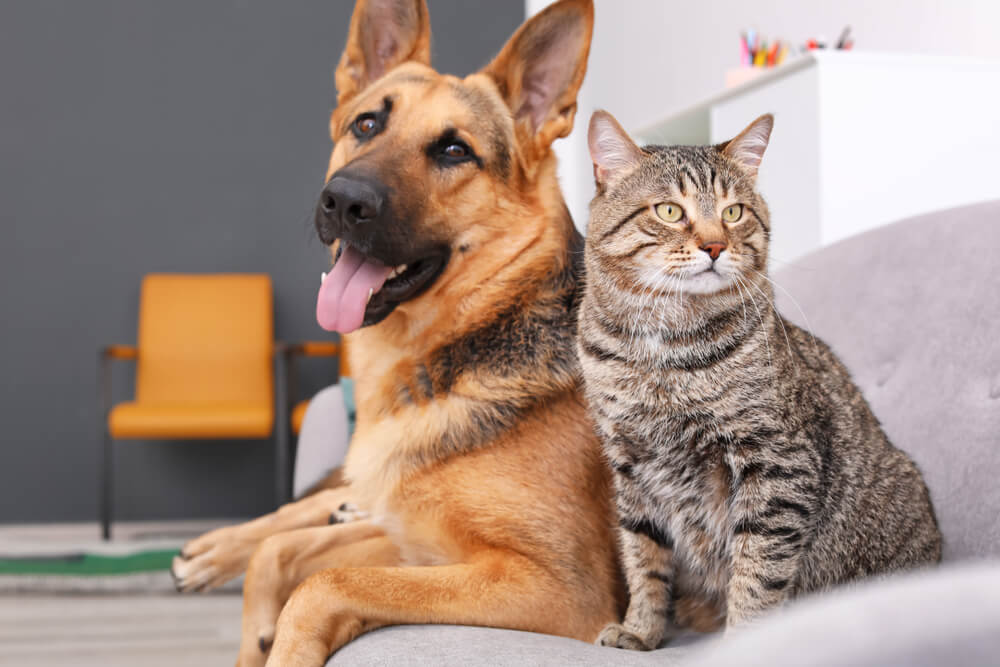
A cat’s brain makes up just under 1% of his or her body mass, making it significantly smaller relative to their bodies when compared to dogs and humans.
Human brains make up around 2% of our body mass, and dogs are closer to 1.2%. Cats are lower, with their brains making up only about 0.9%, but the brain surface folding and structure are similar to ours.
They have areas of their cerebral cortex dedicated to specialized tasks, just like us. Are cats more intelligent than dogs? That may be up for debate, but their brains are more complex.
2. A Cat’s Brain Turns Their Predatory Behavior on at Dawn and Dusk

Cats’ brains tell them to become more active at dawn and dusk, which are prime hunting hours.
Cats are crepuscular, which means that they are most active during the hours surrounding dusk and dawn. These are prime hunting times for them, which means they may be waking you up to be fed right before the alarm goes off!
3. Glucose Is Necessary for Brain Function

A cats’ brain requires glucose to function properly. Some conditions, like diabetes, can affect glucose levels and impact brain health as a result.
The brain, nervous tissue and neurons specifically need glucose, a simple sugar, to function. The brain tissue cannot use other sources of calories for energy and so cannot burn fat or muscle to work.
The body helps keep the cat’s brain supplied with glucose, but this also means that some diseases that affect glucose levels, like diabetes, can affect brain function. When the brain has too little, or too much, glucose, we can see neurologic symptoms such as seizures.
4. Taurine Is Essential for Domestic Cat Brain Function
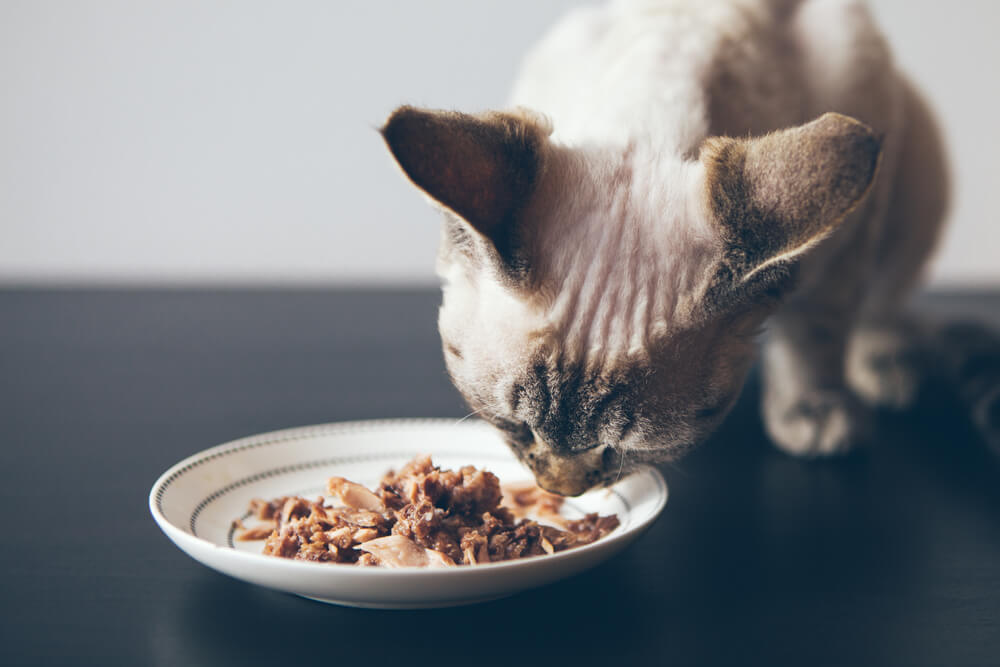
The amino acid taurine (found in fresh meat) is essential to healthy brain functioning in cats.
Taurine is an amino acid that is very important in brain, muscle, and other bodily functions in cats. Many other mammals can make taurine in the body out of nutrients, but cats cannot. They must eat a diet that contains taurine, so be sure you are feeding a reputable, well-balanced diet for cats.
5. Bored Cat Brains Mean Trouble

If a cat doesn’t have enough stimuation, they may become bored and destructive. Stimulating your cat’s brain is an important part of keeping them healthy.
As we have domesticated cats, many of their innate behaviors and cat intelligence suffer in indoor environments. This can lead to cats turning their boredom into bad habits. How can you stimulate your cat’s brain?
- Offer opportunities to hunt: feather toys and mice to chase are great options. Feeding systems where you can hide small meals in mouse-shaped toys and encourage your cat to problem solve and seek them out throughout the day are great for stimulation!
- Offer spaces to rest and observe: cats need a safe perch to observe their dominion. An elevated ledge near a window provides the opportunity to watch and hear birds, squirrels, and other outdoor life safely.
6. Cats Have a Better Developed Long-Term Than Short-Term Memory
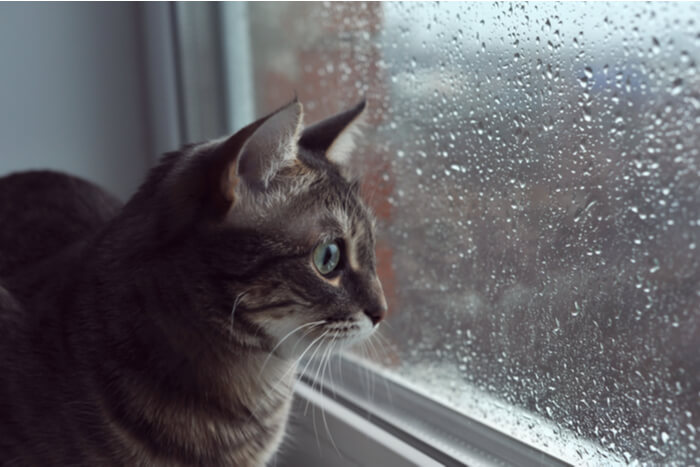
A cat’s long-term memory is better than their short-term memory, meaning that cats may forget short-term input but seem to remember locations and develop lasting associations.
Research suggests that while cats may not remember where you put that toy or treat 5 minutes ago, they do develop long-term memories of locations and build associations.
Given their reliance on hunting, they likely need to be able to go back to those prime prey locations to be successful. Cats do problem solve and will observe and learn from the repeated behaviors of their humans.
7. Cat’s Brains Don’t Stop Telling Them To Hunt Just Because They Have Eaten.
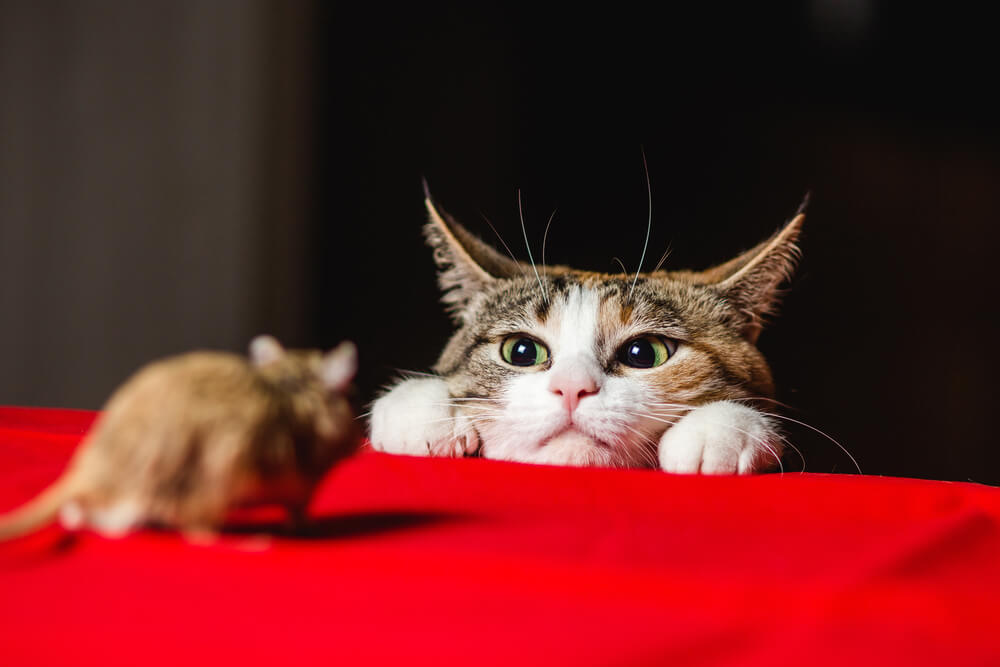
Cats are natural predators hardwired to hunt for their food, but unlike dogs, their desire to hunt doesn’t go away once they’re full.
Felines are not far removed from their wild cat ancestors, which means many of their behavioral characteristics linger. Cats have a strong instinct to hunt. Unlike dogs, who often stop hunting once they have eaten and become satiated, or full, cats will continue to hunt during key time periods to maximize their predatory success.
8. Feline Eyes and Brains Work Together for Optimal Hunting

A cat’s eyes and brain work together to make them better hunters.
Have you noticed how a cat’s eyes seem to “glow’ in dim light or darkness? This is a part of the eye called the tapetum lucidum.
This structure works like a mirror to reflect photons, or light, that is not initially absorbed by the photoreceptors in the back of the eye, giving the retina an extra chance to gather the light. The retina is a direct link to the cat brain and their optic cortex.
Cats also have a higher concentration of rods than people. These differences allow cats to be able to see better in low light, which is exactly when they need to be hunting!
9. The Cat Brain Can Smell What’s Up
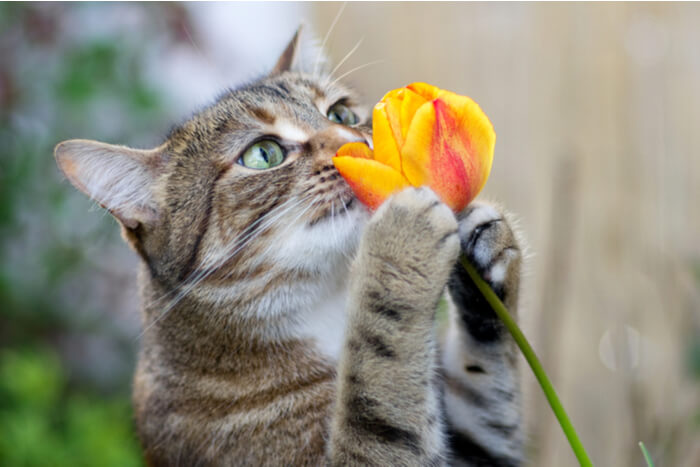
A cat’s sense of smell is more powerful than that of a human. They use scent to communicate with other cats and map out their territory.
Cats use their olfactory ability, or sense of smell, to interpret their world. Strong scents impact them much more than their human counterparts, so refrain from using scented litter and cleaning products in litter box and food areas, as it can deter cats from going in there.
Cats also use pheromones to tell a story of who lives where. When they rub their face, head, and base of tail on surfaces, they are claiming it as their territory! The cat nose and brain work together to map out which cat belongs to a territory.
10. Diseases Can Affect Cat Brains
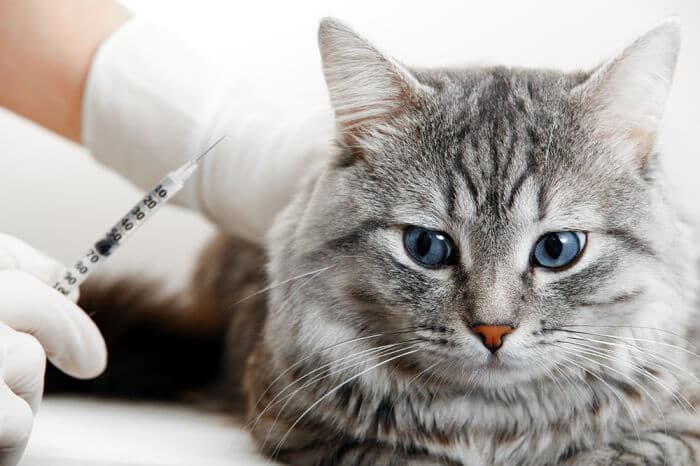
Some diseases, like rabies, can affect your cat’s brain health. This is one reason why it’s important to get your cat vaccinated to protect their long-term health.
There are multiple diseases that affect the feline nervous system, and often specifically the brain. Rabies is an extremely important disease, as it is deadly and can be spread to people. The rabies virus specifically attacks neurons, and is not treatable.
Thankfully there are very effective vaccines available. Even indoor cats need to be vaccinated in case a bat or other animal gets in the house, or should our feline friend accidentally escape.
Read More: Rabies Vaccine for Cats
Other diseases of the cat brain include parasitic infections like Toxoplasmosis and Cytauxzoonosis, infectious diseases like FIV and FIP, and cancer, or brain tumors, such as lymphoma.
Feline cognitive dysfunction occurs when the feline brain ages. Symptoms can include disorientation, change in behavior, and loss of appetite among others. Your veterinarian can suggest options for keeping your cat’s brain healthy for longer.
Final Thoughts
Whether your cat is brilliant or is a terrible hunter, insights into the feline brain help us better support our companions. Understanding their cognitive function allows us to offer proper stimulation for hunting and play and a peaceful environment for their rest.
We can protect them and their brain with proper vaccines and parasite prevention. If your cat is acting odd, showing any signs of loss of balance, or having any neurologic symptoms, seek care from your veterinarian right away. In keeping their brain healthy, we continue to know how good cat companionship is for our souls.
Frequently Asked Questions
Are cats smarter than dogs?
Not really, but their thinking is more complex for hunting. Dogs do have better short-term memory.
Can cats be trained?
Yes! Cats can learn from humans and respond to positive reinforcement and repetition.
Can I give my cat something to make them smarter?
Yes! A good balanced diet, time to play and rest, and toys to stimulate their natural behavior.



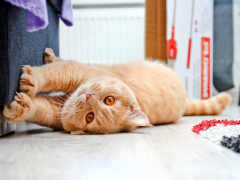
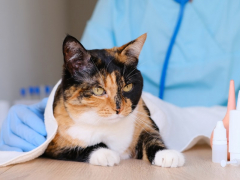



I have a Tortie. Need I say more ☺️
My Tortie is so picky. She won’t eat chicken flavor,or beef,or most anything. Dry is so hard to find that she will eat.
Her food wet or dry has to have grain or she won’t touch it’s.
Frustrated Tortie owner.
I do love her dearly. BabyLove is her name…
Try fromm the pickiest cats will eat that brand.